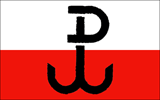
Setting
1890. It has been thirty years since the Great War. Thirty Years since the kings and queens of Europe threw aside reason for madness. Thirty years since the flower of civilization wilted in a hail of grapeshot, under billowing clouds of lethal gas. It has been thirty years of decline and violence, as every upstart nationalist on the Dying Continent knit himself a flag and launched his people into bloody revolt. Thirty years since the sanity of imperialism and civil rule was replaced with an orgy of technological destruction the likes of which the world has never seen. Thirty years of pretenders, and usurpers, and assassinations. The star of Europe has been plunging for thirty years, dragging a split America down with it. The great fleets of the old powers make their homes in graveyards of twisted steel, iron, and warped lumber at the bases of Brest, and Portsmouth, and Helgoland. An entire generation of the best and brightest moulders beneath the soil of Flanders, at the walls of Krakow, atop the cliffs of Dover.
There is no end in sight. As the revolutions continue, and overlap, and collapse, there is no peace on the horizon.
In the distant Orient, however, the world is changing. Conquered peoples across Asia have found their shackles to be rusted and ineffective, and have cast them off with scant effort. The new learning brought by the Europeans can make men and nations strong- the Nipponese Mikado's ashigaru march deeper into the lands of the Manchu every year, and his steel ships sail further and further under plumes of smoke. The Arabs have sacked Ankara and built a new Khaliphate, first with English weapons, now with their own. Everything from Afghanistan to al-Afriquiyya lies within their Umma.
It is an age of new nations. Forgotten garrisons, fallen trading companies, penal colonies, and the fleeing heirs of deposed monarchs all seek to build new lives for themselves in the East. Millions of expatriates with no home to return to are making new lives and forging new nations on the shores of lands they once ruled absolutely. There is great wealth to be had for those who step carefully, great profit and glory for those who use the tools of diplomacy and war with care.
Once again, machines of steam and steel sail the oceans.
Mechanics
Up for negotiations, of course. From the outset, though, the technology level will be late Victorian- ships are powered by coal, are armoured in steel, and duel with cannon and simple torpedoes. Submarines are experimental and extremely unweildy to say the least- certainly not oceangoing. Powered flight is as of yet, an impossibility. Clipper-Ships still ply the seas, and railroads are amazing tools of commerce and industry without peer.
Some thoughts:
1. A resource system. Each player is given a handful of natural resources; industrialization and construction will require more than just the resources you start with. The precise mechanics are up for grabs.
2. A point system for construction, with 3 specializations for capital ships: speed, protection, firepower.
3. All nations start at the same power-level, no graduated system. This is to avoid a pre-set "great power" system. Besides, such a system would not make sense, considering the setting.
Here's the map I've put together. I added extra islands so as to give some room for players who want to set up in the Arabian region. Nations can be placed on any islands, except for the Nipponese ones, and on any of the coastlines outlined in red. Other areas are either too barren, or are held by major NPC nations.

Thoughts? interest?




